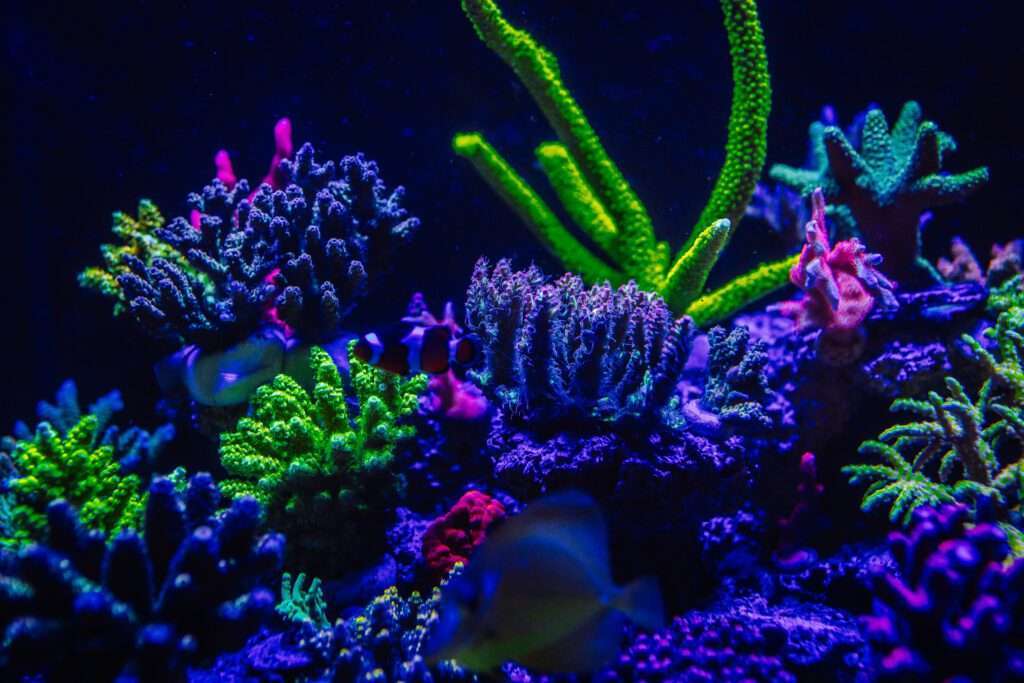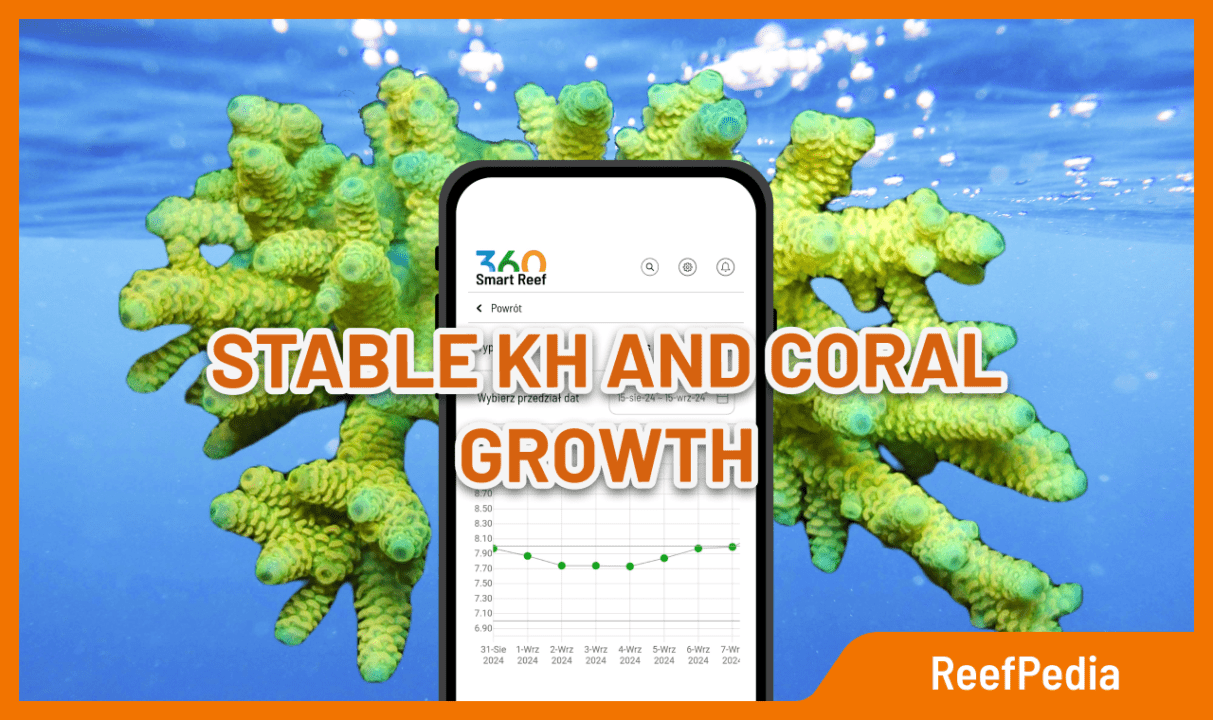Table of Contents
Stable KH: the key to success
In the world of marine aquaristics, maintaining stable water parameters is essential. This stability plays a crucial role in ensuring the health, growth, and vibrant coloration of corals. One of the most critical parameters that requires particular attention is carbonate hardness, known as KH. Stable KH not only supports biological processes in the aquarium but is also a crucial indicator of the overall condition of the aquarium for every marine aquarist.
What does stable KH mean?
KH measures the amount of carbonates and bicarbonates in the water. It is a parameter that stabilizes the pH in the aquarium, preventing sudden fluctuations. Therefore, stable carbonate hardness means maintaining a constant level of carbonates and bicarbonates. This provides optimal conditions for the calcification process of corals.
How to maintain stable KH?
- Regular water testing: To maintain stable carbonate hardness, regular water testing is necessary. Depending on the type of corals and the size of the aquarium, tests can be conducted once a week. In more demanding SPS systems, testing may need to be done several times a day.
- Proper dosing: Maintaining the appropriate KH level requires regular dosing of carbonates. Automatic dosers can be helpful in ensuring consistent and precise delivery of necessary minerals to the water.
- Monitoring KH changes and reacting: Observing changes in KH levels allows for quick response to any deviations. In case of a KH drop, increased dosing is required. If KH levels rise, the cause should be investigated, as it may indicate stress or health issues in the corals.

Benefits of stable KH for coral growth
- Health, better growth, and coloration of corals: Corals in a stable aquatic environment are healthier, which translates to faster growth and more vibrant colors.
- Reduced stress: Stable KH minimizes stress related to pH fluctuations, promoting the health and condition of corals. Some corals, particularly SPS corals, are especially sensitive to KH fluctuations in the tank.
- Optimization of calcification: Stable carbonate hardness ensures a constant supply of necessary carbonates to corals. This allows them to effectively build their calcium carbonate skeletons.

Summary
Stable KH is the foundation of a healthy and thriving marine aquarium. By ensuring stable conditions, including stable carbonate hardness, a marine aquarist can enjoy beautifully colored and faster-growing corals. Regular monitoring, proper dosing, and quick response to KH level changes are key to success in marine aquaristics. If you value convenience and want to automate your system, consider using the KH keeper Plus smart device. It allows you to choose the best option for controlling parameters in your aquarium.
About the author

Marek Protasewicz
Reefkeeping has been my passion for over 10 years now. I love learning. The hobby has taught me many valuable lessons, patience being the best example. Combining work and passion is my path. I run Crazy Coral, a marine aquarium shop, for a number of years. Building this business from the scratch I learnt from my own mistakes at a heavy cost.
Later I managed a project aimed at development of methods for quick growth of Corals in non-natural conditions. The project was carried out by Get Sales, Poland. Presently, I am responsible for distribution strategy at Reef Factory, of which I am a co-founder. The company produces smart devices for marine aquaristics. The last projects I have been involved in are Social Reef and ReefPedia.



